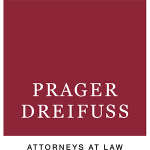Edward Sawyer and Jia Wei Lee look at a recent Court of Appeal decision on the extent of a fiduciary’s obligation to disclose commission payments
In The Attorney General for Hong Kong v Reid [1994] 1 AC 324, Lord Templeman described bribery as ‘an evil practice which threatens the foundations of any civilised society’. And as every trusts lawyer knows, the best way to wage war against depravity is by the well-timed imposition of a constructive trust. What we do not know, however, is how much fiduciaries must tell principals about their commissions. Medsted Associates Ltd v Canaccord Genuity Wealth (International) Ltd [2019] EWCA Civ 83 gives us part of an answer.
The facts
The defendant, Canaccord Genuity Wealth, engaged in the trading of contracts for difference (CFDs). Between 2008 and 2010, the claimant, Medsted Associates, introduced 16 investors to Canaccord. Canaccord agreed to pay Medsted a commission for CFDs placed with Canaccord by customers introduced by Medsted. Canaccord was obliged to disclose trading information of introduced clients to Medsted, for the purposes of calculating this commission.
In 2010, Canaccord approached two clients to discuss their opening new accounts behind Medsted’s back. This scheme was put into action in April 2010. When Medsted discovered these secret accounts, it brought a claim, alleging that Canaccord had breached its disclosure obligation and sought an account of the sums of commissions to which it would have been entitled.
At first instance, Mr Justice Teare found in favour of Medsted, but limited recovery to nominal damages on the basis that:
- Medsted owed fiduciary duties to the introduced investors.
- While the investors knew that Medsted was receiving commissions, Medsted failed to disclose the split of commission between themselves and Canaccord.
- Therefore, Medsted had received secret commissions and on grounds of public policy should be denied substantive recovery.
Lord Justice Longmore allowed Medsted’s appeal. His judgment on each point is worth examining.
Secrecy and fiduciary duties
For the law on secret commissions to be engaged, the person receiving the commission must do so in a fiduciary capacity. Longmore LJ asked if the investors had reposed trust and confidence in Medsted, giving rise to a duty that could be categorised as ‘fiduciary’ and concluded that they had.
This is arguably a surprising finding, given the investors were sophisticated businesspeople who could scarcely be described as vulnerable. Moreover, Medsted had no authority to bind investors and the notion that Medsted had subordinated its interests to those of the investors is difficult to accept. Nevertheless, Longmore LJ was persuaded that there was a fiduciary relationship because Medsted had represented to the investors that the terms offered by Canaccord were competitive. Further, while not discussed in Longmore LJ’s decision, Medsted’s director accepted under cross-examination that he owed a duty to act in the investors’ best interests.
The approach adopted by Longmore LJ is generous, considering the more forensic approach he adopted in another recent decision, Eze v Conway & anor [2019] EWCA Civ 88. But Longmore LJ proceeded to find that the scope of the fiduciary duties owed by Medsted was narrow and did not require disclosure of the particulars of its commission. He found that the scope of a fiduciary duty had to be moulded according to the relationship and, in deciding that this relationship did not give rise to a duty to disclose the particulars of Medsted’s remuneration, relied upon these facts:
- The principals were sophisticated investors.
- They knew that Medsted was receiving a commission.
- They were free to inquire about the terms of Medsted’s compensation and, if they did not like the answer, could take their business elsewhere.
The outcome here is eminently sensible and two points of interest emerge from the analysis. First, the same factors that Longmore LJ did not prioritise in determining whether a fiduciary duty existed were decisive in limiting the scope of that duty. The suggestion is that it is relatively easy to create fiduciary duties, but comparatively harder to create duties that are wide in scope. This is not a comfortable position for brokers like Medsted, because the mere finding of fiduciary status can give principals access to remedies they would not otherwise have.
Second, it seems that there are degrees of secrecy when it comes to commissions. A ‘fully secret’ commission is one whose existence is wholly unknown to the principal. But where its existence is already known, there appears to be, as the court put it in Wilson & anor v Hurstanger Ltd [2007] 1 WLR 2351, a ‘halfway house’ between a situation where there has been just enough disclosure to negate secrecy but not enough to discharge the duty to obtain the principal’s informed consent. It was suggested that there was a further shade of secrecy, where the principal knows of an agreement to pay commissions, but the commissions paid exceeded the amount agreed. The question arises as to whether a ‘half secret’ commission will be held on trust. A fiduciary’s failure to disclose the amount of a commission is different from his accepting a bribe and it is not clear if the former is so unconscionable as to ground a constructive trust.
Illegality
Teare J relied on Weld-Blundell v Stephens [1920] AC 956 as authority for the proposition that damages cannot be claimed where the root of the damage was the claimant’s own wrongdoing. This was a very harsh outcome. The wrongdoing was done to the investors and the disallowance of damages for breach of a contract to which Canaccord was a willing party seems disproportionate.
Longmore LJ was not required to decide this point, but, obiter, noted that Teare J failed to take into account Patel v Mirza [2017] AC 467. When analysed as illegality, he unsurprisingly found that it would have been disproportionate to disallow damages for Medsted’s breach of fiduciary duty. This approach is clearly welcome. However, it is questionable whether the defence of illegality applies. Medsted did not accept a bribe, or even a fully secret commission. It is unclear if the mere breach of a duty to give disclosure rises to the level of turpitude that would trigger an illegality defence. No doubt, Medsted will not be the last word on the matter.


Edward Sawyer and Jia Wei Lee (left to right), Wilberforce Chambers.













